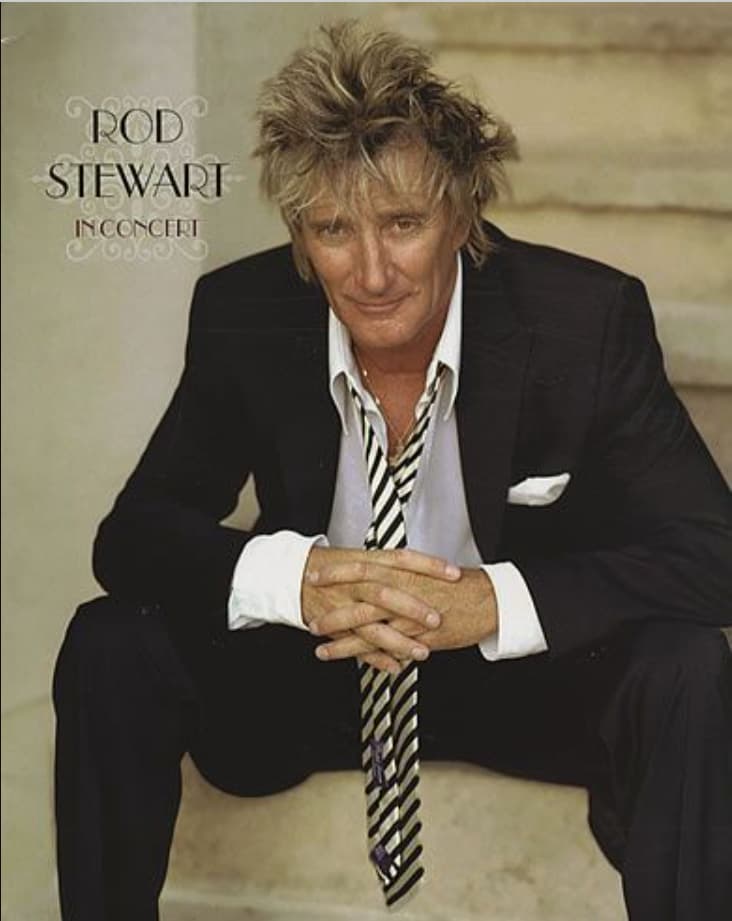
Rod Stewart’s “I Don’t Want to Talk About It” — a soul‑laid confession wrapped in silence
When Rod Stewart sang “I Don’t Want to Talk About It,” it felt like a gentle surrender — a fragile, aching melody that carried all the weight of unspoken heartache.
From the outset, this song holds an almost mythical place in Rod Stewart’s career, and rightly so. Originally written by Danny Whitten (of Crazy Horse) and Nils Lofgren, it first appeared on Crazy Horse’s self-titled album in 1971. But it was Rod Stewart’s version — recorded in 1975 at Muscle Shoals Sound Studio and released on his Atlantic Crossing album — that brought the song into widespread public consciousness.
Chart Success and Legacy
When released as a single in March 1977 (often paired as a double A-side with “The First Cut Is the Deepest”), “I Don’t Want to Talk About It” ascended to No. 1 on the UK Singles Chart. This wasn’t just a quiet success; its timing and release have become a piece of music lore. It’s widely believed the single was deliberately issued as a budget release — partly to overshadow the Sex Pistols’ “God Save the Queen”,” which was controversial and charting at the same time.
Across the Atlantic, the song found more modest but still meaningful success: it reached No. 46 on the U.S. Billboard Hot 100 and No. 44 on the Adult Contemporary chart. Then, in 1989, Rod Stewart revisited the song for Storyteller: The Complete Anthology 1964–1990. The re-recorded version made waves again, eventually climbing to No. 2 on the U.S. Adult Contemporary chart.
The Story Behind the Song
Beyond the charts, the real power of “I Don’t Want to Talk About It” lies in its origin and how deeply personal it feels. Danny Whitten, who co-wrote the song, was battling addiction during his time with Crazy Horse, and tragically died in 1972. His pain, his vulnerability—they bleed through the lyrics, even in Stewart’s more polished interpretation.
Nils Lofgren, the song’s co‑writer, has recounted how they wrestled with its structure: Whitten wasn’t satisfied, they argued, and finally someone (Lofgren himself) added a couple of lines in the studio, just so the song would feel complete. That rawness — two men, guitars in hand, speaking in silence and melody — haunts every note.
For Rod Stewart, the turning point came during a Christmas concert in London: the crowds began singing along to “I Don’t Want to Talk About It,” word for word. He later admitted he was moved to tears. That moment made it clear: this wasn’t just his song anymore, it belonged to the people, each with their own unspoken stories.
Meaning and Emotional Weight
At its heart, “I Don’t Want to Talk About It” is a confession of heartbreak so deep the speaker has run out of words. Lines like:
“I don’t want to talk about it, how you broke my heart.”
…aren’t just lyrics — they are the fragile murmur of someone trying to protect what remains of themselves, choosing silence over explanation. The “stars in the sky” being “a mirror” is a poetic touch that captures reflection, emptiness, and a profound loneliness.
For older listeners, especially, the song can evoke a timeless sense of yearning — the kind that comes not only from lost love, but from moments missed, regrets held in private, the weight of what was never said.